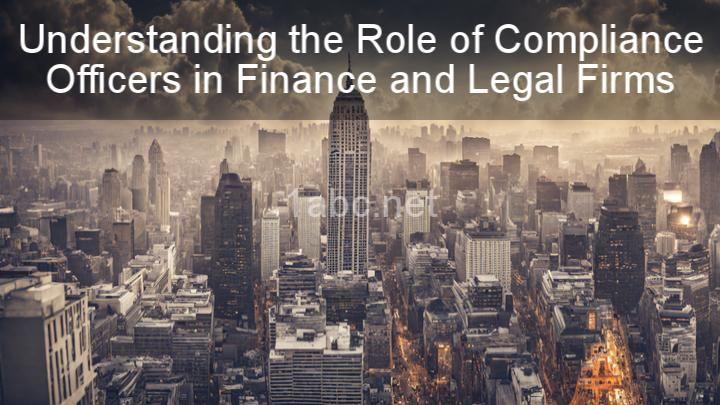Protecting Your Business Assets: Legal Strategies to Shield Your Company's Wealth

Introduction:
Welcome to our blog post on protecting your business assets. As a business owner, you understand the importance of safeguarding your company's wealth. However, you may also be aware of the challenges that come with it. In this article, we will provide you with practical legal strategies that can help protect your business assets, ensuring the long-term success of your company.
I. Understanding Business Assets:
Before we dive into the legal strategies, let's first define what constitutes business assets. Business assets can range from tangible assets such as real estate and equipment to intangible assets like intellectual property. These assets form the foundation of your business and protecting them is crucial for maintaining your competitive edge and ensuring financial stability. Unfortunately, businesses face various threats to their assets, including lawsuits, theft, and economic downturns. By implementing effective legal strategies, you can mitigate these risks and safeguard your company's wealth.
II. Choosing the Right Legal Structure:
One of the most important decisions you'll make as a business owner is choosing the right legal structure for your company. The legal structure you select can have a significant impact on asset protection and liability. There are several options to consider, including sole proprietorship, partnership, and corporation. Each structure has its own advantages and disadvantages in terms of asset protection. It is advisable to seek professional advice to determine the most suitable legal structure for your specific business needs.
III. Intellectual Property Protection:
Intellectual property is often one of the most valuable assets for businesses, yet it is also one of the most vulnerable. Protecting your intellectual property, which includes patents, trademarks, and copyrights, is essential for maintaining your competitive advantage and preventing others from profiting from your ideas. In this section, we will provide an overview of the different types of intellectual property and their legal protections. We will also offer tips on how to register and enforce your intellectual property rights effectively.
IV. Contracts and Agreements:
Contracts play a vital role in asset protection. Well-drafted contracts can help clarify expectations, allocate risks, and minimize disputes. When drafting contracts, it is important to include key clauses that protect your interests, such as indemnification and limitation of liability provisions. In this section, we will discuss the importance of well-drafted contracts and provide guidance on negotiating favorable terms to protect your assets.
V. Insurance Coverage:
Insurance is an essential tool for mitigating risks and protecting your business assets. General liability insurance and professional liability insurance are just a few examples of coverage options available to businesses. Having adequate insurance coverage can provide financial protection in the event of accidents, lawsuits, or other unforeseen circumstances. We will discuss the role of insurance in asset protection and provide guidance on reviewing policies regularly to ensure your coverage aligns with your business needs.
VI. Asset Segregation:
Asset segregation involves separating personal and business assets to protect both. Commingling funds or using personal assets for business purposes can create legal and financial vulnerabilities. In this section, we will explain the concept of asset segregation and discuss methods such as trusts or holding companies that can help you separate your personal and business assets effectively.
VII. Compliance with Regulations:
Complying with relevant laws and regulations is crucial for protecting your business assets. Failing to do so can result in severe penalties and legal consequences. In this section, we will highlight the importance of complying with key regulations, such as data privacy and employment laws. We will also provide guidance on conducting regular audits to ensure ongoing compliance and minimize risks to your assets.
Conclusion:
Protecting your business assets is essential for the long-term success and stability of your company. By understanding the different legal strategies available, such as choosing the right legal structure, protecting intellectual property, drafting effective contracts, obtaining adequate insurance coverage, segregating assets, and complying with regulations, you can shield your company's wealth from threats and minimize risks. We encourage you to take action and seek professional advice to implement these strategies effectively. Remember, safeguarding your business assets is an ongoing process that requires vigilance and regular review.
FREQUENTLY ASKED QUESTIONS
What is the importance of protecting my business assets?
Protecting your business assets is of utmost importance for several reasons. Firstly, your assets, such as equipment, inventory, and intellectual property, represent a significant investment that you have made in your business. By safeguarding these assets, you ensure that your business can continue to operate smoothly and efficiently.Secondly, protecting your business assets helps to safeguard your reputation and brand image. If your assets were to be damaged, stolen, or misused, it could negatively impact your business's ability to deliver products or services to your customers. This could lead to a loss of trust and credibility, potentially resulting in a decline in customer loyalty and revenue.
Furthermore, protecting your business assets is crucial for legal and compliance purposes. Many industries have specific regulations and requirements regarding the protection of certain assets. Failing to comply with these regulations can result in legal consequences, fines, or even the closure of your business.
Lastly, protecting your business assets helps to mitigate risks and uncertainties. By implementing security measures, such as surveillance systems, access controls, and cybersecurity protocols, you reduce the likelihood of theft, damage, or unauthorized access to your assets. This proactive approach minimizes potential disruptions to your business operations and ensures the continuity of your business.
In conclusion, protecting your business assets is vital for maintaining operational efficiency, preserving your reputation, complying with regulations, and mitigating risks. By prioritizing asset protection, you safeguard your investment and contribute to the long-term success of your business.
What are some common types of business assets that should be protected?
There are several common types of business assets that should be protected. These assets play a crucial role in the success and profitability of a business. Here are some of the key types of assets that businesses need to safeguard:
-
Intellectual Property: This includes copyrights, trademarks, patents, and trade secrets. Intellectual property rights protect a business's unique ideas, inventions, brand identity, and creative works. It is important to secure these assets to prevent unauthorized use and infringement.
-
Physical Assets: These include tangible items such as buildings, equipment, vehicles, inventory, and any other physical property owned by the business. Protecting these assets through security measures, insurance, and regular maintenance is essential to avoid losses and disruptions.
-
Financial Assets: This category encompasses cash, bank accounts, investments, and other financial resources. Effective financial management, including proper accounting practices, risk assessment, and fraud prevention measures, help protect these assets from mismanagement and theft.
-
Customer and Supplier Data: Businesses often accumulate a significant amount of sensitive information about their customers and suppliers. Safeguarding this data through cybersecurity measures and strict privacy policies is crucial to maintain trust and prevent data breaches.
-
Brand Reputation: A strong brand reputation is an invaluable asset that takes time and effort to build. Protecting this asset involves managing public relations, monitoring online presence, and addressing any negative feedback or reviews promptly.
-
Human Capital: Employees play a vital role in a business's success. Protecting human capital involves maintaining a positive work environment, providing fair compensation and benefits, and implementing effective talent management strategies to retain valuable employees.
-
Contracts and Legal Documents: Businesses rely on contracts and legal agreements to establish relationships with clients, suppliers, and other stakeholders. Properly drafting, reviewing, and storing these documents helps protect the business's legal rights and obligations.
It is important for businesses to assess their specific risks and vulnerabilities to determine the appropriate measures needed to protect these assets. Seeking legal advice and consulting with experts in asset protection can provide valuable guidance tailored to the unique needs of the business.
How can I protect my business assets from legal threats?
To protect your business assets from legal threats, there are several steps you can take:
-
Obtain the appropriate insurance coverage: Ensure that your business has adequate liability insurance, property insurance, and any other relevant coverage to protect against potential legal claims and damages.
-
Implement strong legal contracts: Use well-drafted contracts that clearly outline the terms and conditions of your business transactions. These contracts should include provisions for dispute resolution, indemnification, and limitations of liability.
-
Maintain accurate and up-to-date records: Keep meticulous records of all business transactions, financial statements, contracts, and other important documents. This will help you establish a strong defense in case of any legal disputes.
-
Separate personal and business assets: Establish a legal entity for your business, such as a corporation or limited liability company (LLC). This will provide a level of protection by separating your personal assets from your business assets, limiting your personal liability.
-
Protect intellectual property: If your business relies on intellectual property, such as patents, trademarks, or copyrights, make sure to register and protect these assets. This will help prevent others from infringing on your rights and potentially damaging your business.
-
Stay informed and seek legal advice: Keep yourself updated on relevant laws and regulations that may impact your business. Consult with an experienced business attorney who can provide guidance and advice specific to your industry and circumstances.
Remember, protecting your business assets from legal threats requires proactive measures and ongoing vigilance. By taking these steps, you can minimize the risk of legal challenges and safeguard your business's future.
Can I protect my personal assets from being vulnerable to business liabilities?
Yes, you can protect your personal assets from being vulnerable to business liabilities. One effective way to do this is by establishing a legal entity, such as a Limited Liability Company (LLC) or a corporation, for your business. By doing so, you create a separate legal entity that can shield your personal assets from any financial obligations or lawsuits related to your business.Another important step is to ensure that you maintain proper separation between your personal and business finances. This means opening a separate bank account for your business and keeping clear records of all financial transactions. By keeping your personal and business finances separate, you can minimize the risk of your personal assets being used to satisfy business liabilities.
Additionally, it is crucial to obtain appropriate insurance coverage for your business. This can include general liability insurance, professional liability insurance, or product liability insurance, depending on the nature of your business. Insurance can provide an extra layer of protection and help cover any potential liabilities that may arise.
It is also advisable to seek professional legal advice to ensure that you are taking all the necessary steps to protect your personal assets. An attorney with expertise in business law can guide you through the process and help you establish the best legal structure for your business.
Remember, protecting your personal assets is an important aspect of managing your business's risks. Taking proactive steps to separate your personal and business finances, obtaining appropriate insurance coverage, and seeking legal advice can go a long way in safeguarding your personal assets from business liabilities.
